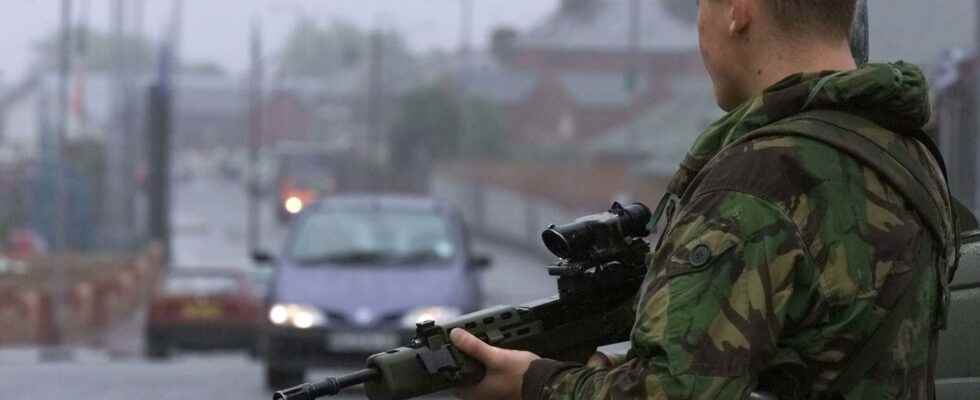Published: Just now
A former British soldier has been given a three-year suspended sentence for killing a man at a roadblock in Northern Ireland.
The conviction is the first, and perhaps last, since 1998 against a British soldier for crimes while on duty during the long conflict.
On his way to a Gaelic football match, Aidan McAnespie went through a roadblock in the village of Aughnacloy near the border with Ireland. A few meters after passing, he was shot in the back and died on the spot, on February 21, 1988.
The person who fired the fatal shot was a then 18-year-old soldier in the British Army, who has now been convicted of manslaughter. The soldier, David Holden, is sentenced to a three-year suspended sentence and, according to Judge John O’Hara, he can thank an unblemished criminal record for avoiding prison.
Relieved family
Holden has told the court in Belfast that the shooting was an accident, that his automatic weapon went off because his hands were sweaty and he himself was inexperienced. 23-year-old McAnespie was flagged as “of interest” in army investigations into suspected IRA members, and soldiers are said to have been paying extra attention to his movements.
His family now say they are relieved that Holden has been convicted, and that a lengthy legal process is now over.
– We lost our father and our sister during this long time. It felt like being stopped at that roadblock every time we got to court, brother Sean McAnespie told the BBC.
The family are the first since the so-called Good Friday Agreement of 1998 to see a soldier convicted of killing during the conflict in Northern Ireland – and they may be the last.
Proposal for amnesty
In the House of Commons in London, a bill is currently being discussed that would put an end to prosecutions linked to the bloody conflict in Northern Ireland. The proposal includes all events that can be linked to the conflict, what is known in English as “the troubles”.
It would also include the man, “Soldier F”, who is charged with the deaths during “Bloody Sunday” on January 30, 1972, when 13 protesters were shot dead by British soldiers in Derry.
The proposal is believed to have strong support in Westminster, but faces opposition not only from family groups and political parties in Northern Ireland. The Republic of Ireland has protested, as have human rights experts in both the UN and the Council of Europe.
But a month ago, Jonathan Caine, one of those behind the bill, told the BBC that:
– It will definitely not be voted down (in parliament) and I can’t see any circumstances that would make us withdraw it.
Facts
Background: The conflict in Northern Ireland
Northern Ireland was ruled until 1972 by a Protestant majority that discriminated against the Catholic population. When a peaceful civil rights movement in the late 1960s began demanding equal rights for Catholics, their demands were met with violence from Protestants who saw their position of power threatened.
It triggered a spiral of violence in which the Irish Republican Army (IRA), which fought for a united Ireland, and Protestant paramilitary groups, which wanted to maintain ties to Britain, committed bloody attacks. Around 3,700 people lost their lives in the more than 30-year-long violent period, which is usually referred to as “the troubles”.
A peace agreement was concluded in 1998 and step by step life in Northern Ireland has returned to normal, although the violence has not completely disappeared. Not all problems could be solved and the peace process has been marred by crises.
Britain’s complicated exit from the EU has raised fears that the conflict will flare up again, as the open border between Northern Ireland and Ireland is affected.
Source: Landguiden
Read more
